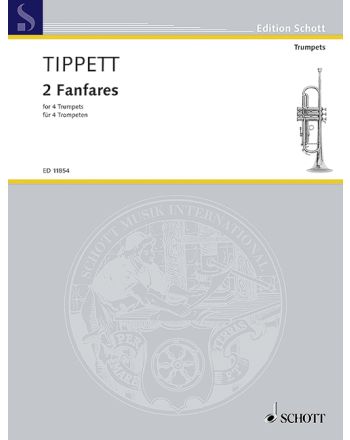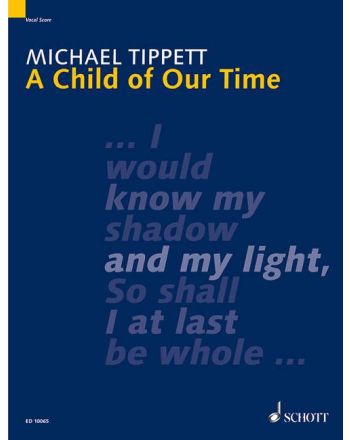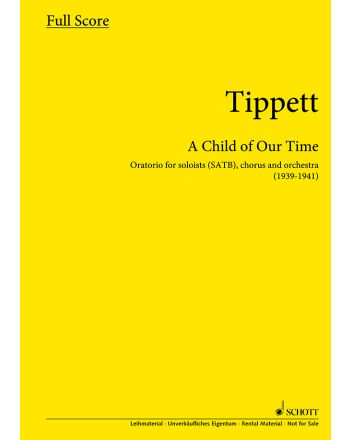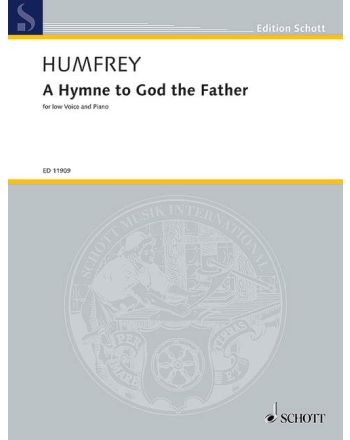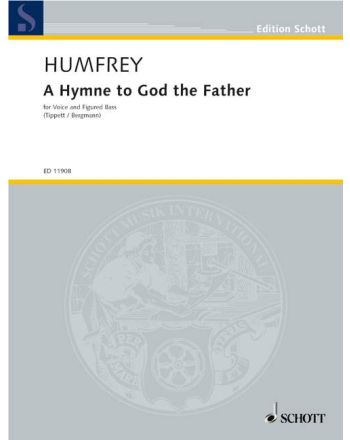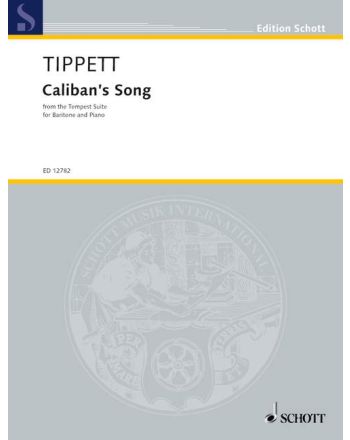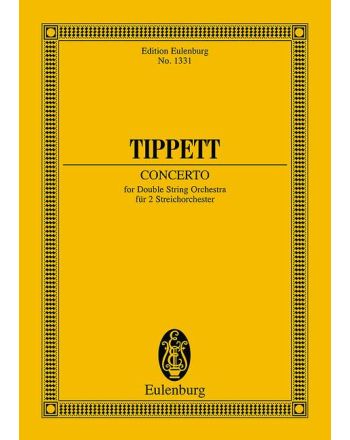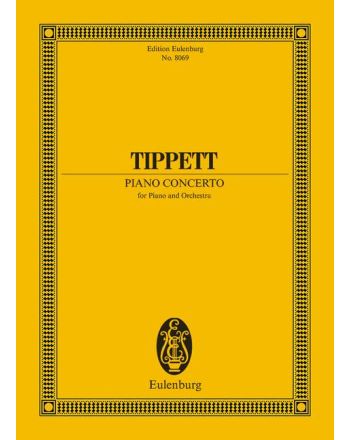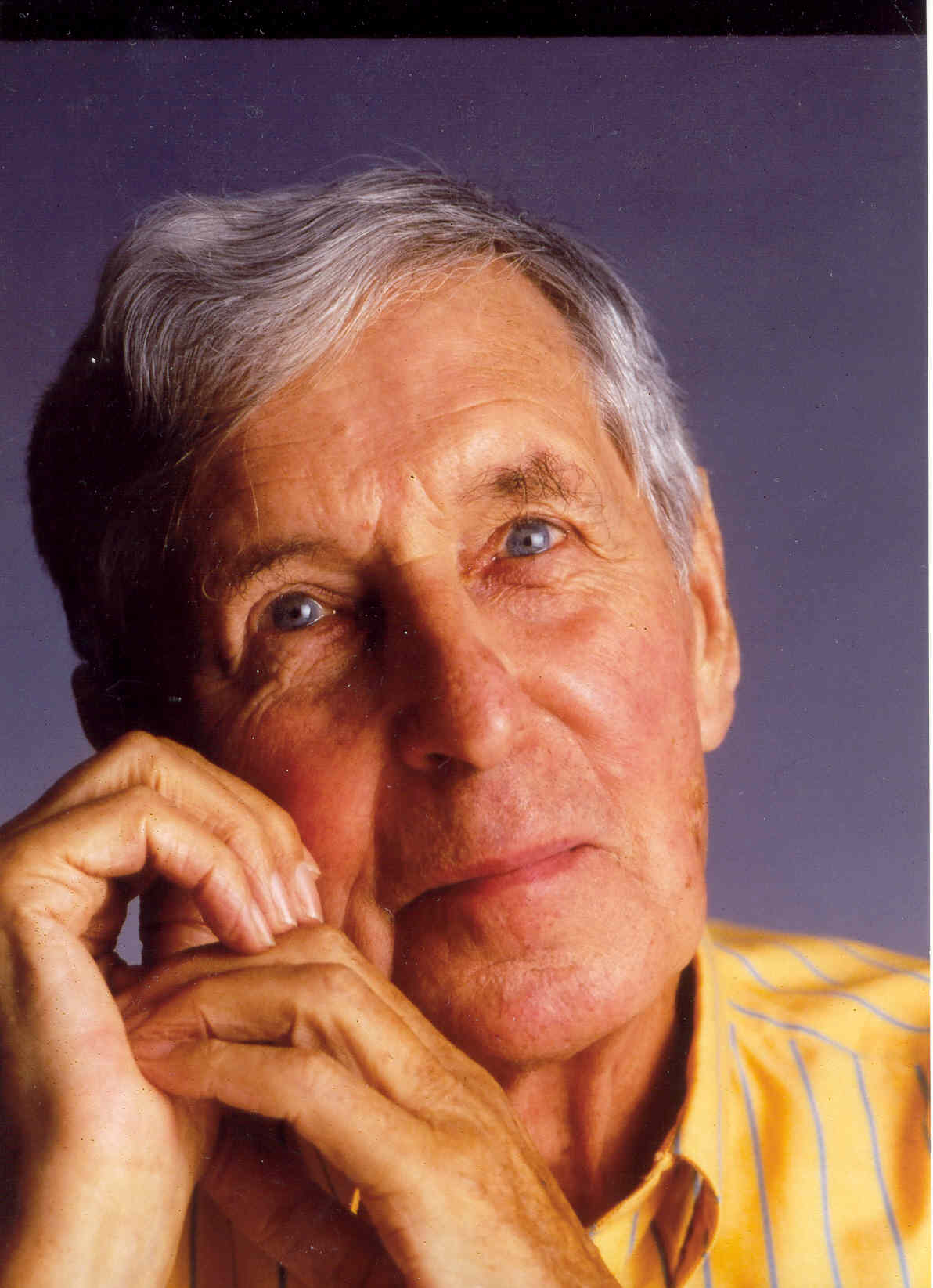
Sir Michael Tippett
À venir
À propos de Sir Michael Tippett
‘What attracts one most in his music is the vibrancy and exuberance it gives off, the feeling it communicates of a richness of temperament and of humanity’. American Academy of Arts and Letters Sir Michael Tippett was born in London in 1905 and spent his childhood in Suffolk, making little contact with music until his teens. Thereafter he studied at the Royal College of Music and from 1928 lived in Oxted, Surrey, teaching French in a preparatory school and conducting a concert and operatic society, which enabled him to spend long periods at composition. In April 1930 an Oxted concert featured his main works to date; but these he afterwards withdrew. He then went for further lessons with R. O. Morris. These proved formative: he developed special skills in counterpoint which propelled him towards the first works of his creative maturity, his String Quartet No. 1 (1935; revised 1944) and Piano Sonata No. 1 (1936-7).
Both during his student days and after, Tippett responded deeply to world events - the First World War, the Depression and mass unemployment. He became involved in political radicalism, organised the South London Orchestra of Unemployed Musicians and directed two choirs sponsored by the Royal Arsenal Co-operative Society. At the same time his aesthetic ideas had crystallised in the course of several informal encounters with T. S. Eliot. The outcome of all this was the oratorio A Child of Our Time (1939-41), an impassioned protest against persecution and tyranny and now his most widely performed composition.
Tippett became musical director of Morley College in 1940 and remained there until 1951, giving it a new lease of musical life. The college became the focal point of the revival of Purcell’s music, and Tippett presented and recorded the first performance since Elizabethan times of Tallis’s 40-part motet; much new music featured, and upcoming artists like Alfred Deller, Peter Pears and the Amadeus Quartet, who were later to achieve worldwide fame. Meanwhile, in 1943, he was sentenced to three months’ imprisonment for refusing, as a pacifist, to comply with conditions of exemption from active war service. He remained committed to the pacifist cause.
After leaving Morley College, Tippett devoted himself almost entirely to composition, earning a small secondary income from radio talks. He completed his Symphony No. 1 in 1945 and then embarked on his first opera, The Midsummer Marriage; like his next three operas, it was first produced by the Royal Opera House. They exerted a considerable influence upon his subsequent symphonies, sonatas, concertos and quartets.
Tippett’s international reputation blossomed from his sixties onwards, partly through a proliferation of recordings of his music. He was especially esteemed in America, and some of his most significant works (such as his Fourth Symphony and The Mask of Time) were US commissions.
Throughout his eighties, Tippett remained exceptionally active, composing, conducting and travelling worldwide. His fifth opera, New Year, commissioned jointly by Houston Grand Opera, Glyndebourne and the BBC, received its première in 1989, was toured all over the UK the following year and the BBC screened their own television production in 1991. Immediately after the opera came Byzantium, for soprano and orchestra (premièred in Chicago in 1991 and repeated the same year at the Proms) and a Fifth String Quartet (1992). His last orchestral work, The Rose Lake, was premiered by the London Symphony Orchestra under Sir Colin Davis as part of a two-week long festival celebrating his 90th birthday at the Barbican Centre, London. Subsequently, during a two-month tour of the USA and Canada, Tippett heard this greatly acclaimed work performed eleven times.
Also in 1995, following upon his autobiography, Those Twentieth Century Blues (1991), his definitive collection of essays, Tippett on Music was published, and he wrote an idiosyncratic contribution to the Purcell tercentenary celebrations, Caliban’s Song, for the BBC.
In November 1997 the Stockholm Concert Hall presented a 12-day Tippett Festival which included all his music except the stage works. Tippett travelled to Stockholm but was taken ill with pneumonia. Although he was able eventually to return to the UK, he never fully recovered and died peacefully at his home in South London on 8 January 1998.
Tippett received many honours and awards; he was made a CBE in 1959, was knighted in 1966, became a Companion of Honour in 1979 and was awarded the Order of Merit in 1983; he was a recipient of the gold medal of the Royal Philharmonic Society.
The Michael Tippett Musical Foundation was set up in 1979. The Foundation's purpose is to make donations in the field of music and in its first twenty years more than 500 grants were given to organisations across the United Kingdom to support young musicians and composers, new music and music education initiatives.
In 2019, acclaimed writer and broadcaster Oliver Soden released a comprehensive and illuminating portrait of composer Michael Tippett through his groundbreaking biography, "Michael Tippett: The Biography," shedding new light on the life and musical legacy of Tippett.
In 2023, the BBC presented " The Shadow and the Light," a captivating documentary by John Bridcut that brilliantly captures the vibrant life of Michael Tippett. This in-depth film showcases a wide array of Tippett's musical works, beautifully performed by the BBC Scottish Symphony Orchestra and Bearsden Choir, filmed in the enchanting city of Glasgow.
Liste d'œuvres
Galerie


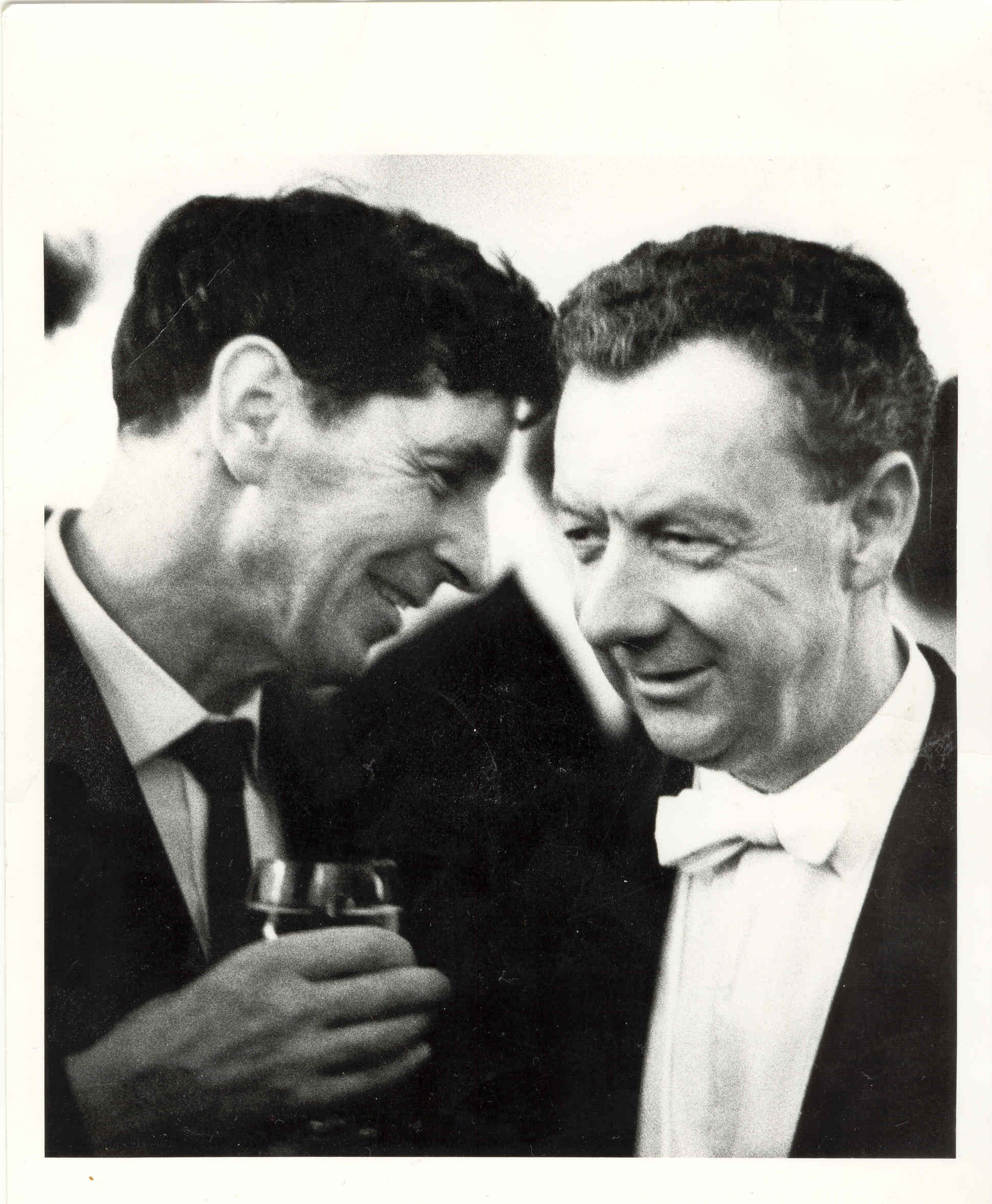
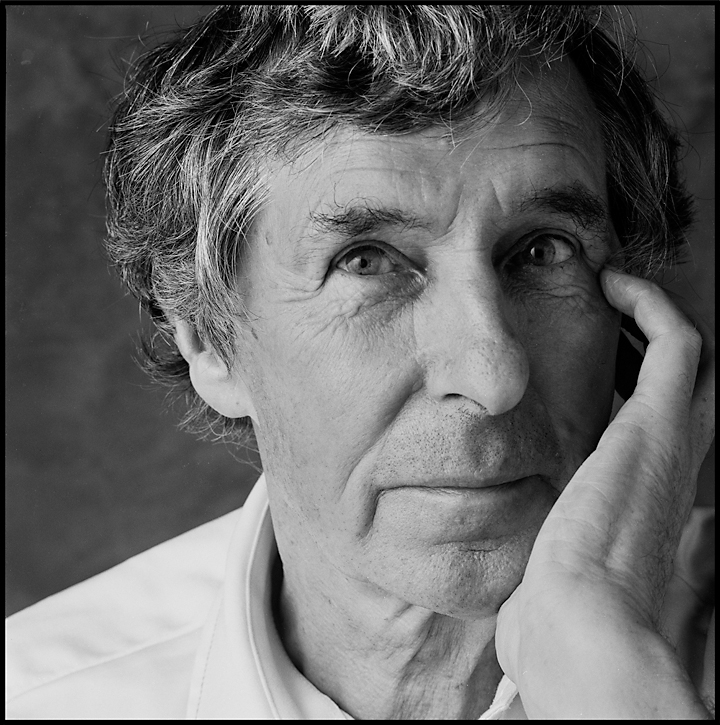


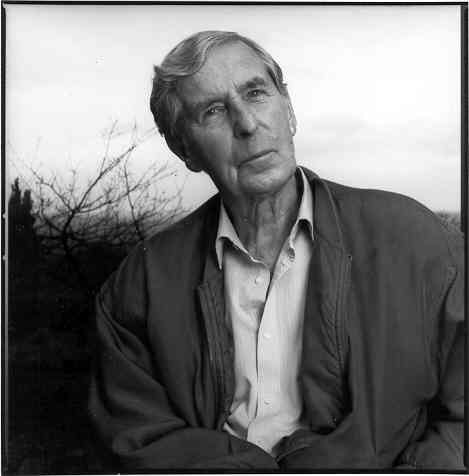


Chronologie
Teaches French and conducts local amateur groups.
Meets Evelyn Maude, an amateur cellist who was to become a lifelong friend and confidante.
Has private tuition in orchestration from Gordon Jacob
Begins friendship with David Ayerst, who introduces him to left-wing politics
Premiere of "Concerto for Double String Orchestra"
Premiere of "String Quartet No. 2 "
Premiere of "Symphony No 1"
Resigns from Morley College
Publishes Moving into Aquarius, a collection of talks and essays
Begins long association with the Leicestershire Schools Symphony Orchestra
Receives knighthood
Elected a foreign honorary member of the American Academy of Arts and Sciences
Becomes a Companion of Honour
Sets up the Michael Tippett Musical Foundation, a charitable trust
Premiere of "The Mask of Times"
Premiere of "Piano Sonata No. 4"
Publishes his autobiography, Those Twentieth Century Blues
Produits
-
for 4 trumpetsCompositeur: Sir Michael TippettEdition: Partition et partiesSérie: Edition Schott
Numéro du produit: ED 11854Type de produitEn stockPrix à partir de 16,99 €TTC -
OratorioCompositeur: Sir Michael TippettEdition: Partition d'étudeInstrumentation: choeur mixte (SATB/SATB), solistes (SATB) et orchestreNuméro du produit: ETP 8053Type de produitEn stockPrix à partir de 34,99 €TTC
-
OratorioCompositeur: Sir Michael TippettEdition: Réduction pour pianoSérie: A Child of Our Time
Instrumentation: choeur mixte (SATB/SATB), solistes (SATB) et orchestreNuméro du produit: ED 10065Type de produitEn stockPrix à partir de 19,99 €TTC -
Oratorio for soloists (SATB), chorus and orchestraCompositeur: Sir Michael TippettMedia Type: Matériel en location / d'exécutionEdition: Matériel d'exécutionLangue: AnglaisMatériel en location / d'exécutionMatériel en location / d'exécution
-
for low voice and pianoCompositeur: Pelham HumfreyEditeur: Walter Bergmann | Sir Michael TippettSéries: Voice and Keyboard, No. 6
Edition Schott
A Hymne to God the Father, No. 6
Instrumentation: voix et pianoNuméro du produit: ED 11909Type de produitEn stockPrix à partir de 4,99 €TTC -
for high voice and pianoCompositeur: Pelham HumfreyEditeur: Walter Bergmann | Sir Michael TippettSéries: Voice and Keyboard, No. 6
Edition Schott
A Hymne to God the Father, No. 6
Instrumentation: voix et pianoNuméro du produit: ED 11908Type de produitEn stockPrix à partir de 3,99 €TTC -
text by John DonneCompositeur: Pelham HumfreyEditeur: Walter Bergmann | Sir Michael TippettMedia Type: Matériel en location / d'exécutionEdition: Matériel d'exécutionLangue: AnglaisMatériel en location / d'exécutionMatériel en location / d'exécution
-
text by John DonneCompositeur: Pelham HumfreyEditeur: Walter Bergmann | Sir Michael TippettMedia Type: Matériel en location / d'exécutionEdition: Matériel d'exécutionLangue: AnglaisMatériel en location / d'exécutionMatériel en location / d'exécution
-
DuetCompositeur: John BlowEditeur: Walter Bergmann | Sir Michael TippettSéries: Voice and Keyboard, No. 30
Edition Schott
Instrumentation: 2 sopranos et pianoNuméro du produit: ED 11948Type de produitEn stockPrix à partir de 6,99 €TTC -
Ach! wie süß zu liebenCompositeur: Henry PurcellEditeur: Walter Bergmann | Sir Michael TippettMedia Type: PartitionSérie: Voice and Keyboard, No. 16
Instrumentation: voix grave et pianoLangue: Allemand, AnglaisNuméro du produit: ED 11925Format papierFormat papierEn stock3,95 €TTC, hors expédition -
Ach! wie süß zu liebenCompositeur: Henry PurcellEditeur: Walter Bergmann | Sir Michael TippettMedia Type: PartitionSérie: Voice and Keyboard, No. 16
Instrumentation: voix aigüe et pianoLangue: Allemand, AnglaisNuméro du produit: ED 11924Format papierFormat papierEn stock3,95 €TTC, hors expédition -
Cantata for BassCompositeur: Johann Sebastian BachEditeur: Walter Bergmann | Sir Michael TippettSéries: Voice and Keyboard
Edition Schott
Instrumentation: basse et clavecin (piano)Numéro du produit: ED 11911Type de produitEn stockPrix à partir de 9,99 €TTC -
Wedding SongCompositeur: Henry PurcellEditeur: Walter Bergmann | Sir Michael TippettMedia Type: PartitionSérie: Voice and Keyboard, No. 13
Instrumentation: voix aigüe et pianoLangue: AnglaisNuméro du produit: ED 11919Format papierFormat papierEn stock7,50 €TTC, hors expédition -
An Opera in 3 actsCompositeur: Sir Michael TippettMedia Type: PartitionEdition: Réduction pour pianoSérie: King Priam
Langue: Allemand, AnglaisNuméro du produit: ED 10787Format papierFormat papierEn stock87,00 €TTC, hors expédition -
Prelude No. 3 from "Crown of the Year"Compositeur: Sir Michael TippettMedia Type: Matériel en location / d'exécutionEdition: Matériel d'exécutionMatériel en location / d'exécutionMatériel en location / d'exécution
-
from "Ode for the Birthday of Queen Mary"Compositeur: Henry PurcellEditeur: Walter Bergmann | Sir Michael TippettSérie: Edition Schott
Instrumentation: soprano, hautbois et pianoNuméro du produit: ED 10242Type de produitEn stockPrix à partir de 12,99 €TTC -
Northumbrian FolksongCompositeur: Sir Michael TippettEdition: Partie séparée, Alt-BlockflöteSérie: Bonny at Morn
Instrumentation: choeur d'enfants (Mez) et 3 flûtes à bec (SSA)Numéro du produit: ED 12051-13Type de produitEn stockPrix à partir de 0,99 €TTC -
Northumbrian FolksongCompositeur: Sir Michael TippettEdition: Partie séparée, Sopran-Blockflöte IISérie: Bonny at Morn
Instrumentation: choeur d'enfants (Mez) et 3 flûtes à bec (SSA)Numéro du produit: ED 12051-12Type de produitEn stockPrix à partir de 1,99 €TTC -
Northumbrian FolksongCompositeur: Sir Michael TippettEdition: Partie séparée, Sopran-Blockflöte ISérie: Bonny at Morn
Instrumentation: choeur d'enfants (Mez) et 3 flûtes à bec (SSA)Numéro du produit: ED 12051-11Type de produitEn stockPrix à partir de 1,99 €TTC -
Northumbrian FolksongCompositeur: Sir Michael TippettEdition: Partie de choeurSérie: Bonny at Morn
Instrumentation: choeur d'enfants (Mez) et 3 flûtes à bec (SSA)Numéro du produit: ED 12051-10Type de produitEn stockPrix à partir de 0,99 €TTC -
Northumbrian FolksongCompositeur: Sir Michael TippettEdition: PartitionSérie: Bonny at Morn
Instrumentation: choeur d'enfants (Mez) et 3 flûtes à bec (SSA)Numéro du produit: ED 12051-01Type de produitEn stockPrix à partir de 7,99 €TTC -
Compositeur: Henry PurcellEditeur: Walter Bergmann | Sir Michael TippettMedia Type: PartitionSérie: Voice and Keyboard, No. 22
Instrumentation: voix aigüe et pianoLangue: Allemand, AnglaisNuméro du produit: ED 11935Format papierFormat papierEn stock5,50 €TTC, hors expédition -
CantataCompositeur: Sir Michael TippettSéries: Edition Schott
Boyhood's End
Instrumentation: ténor et pianoNuméro du produit: ED 10279Type de produitEn stockPrix à partir de 9,99 €TTC -
CantataCompositeur: Sir Michael TippettMedia Type: PartitionSérie: Boyhood's End
Instrumentation: baryton et pianoLangue: AnglaisNuméro du produit: ED 12331Format papierFormat papierEn stock15,50 €TTC, hors expédition -
from 'Severn Bridge Variations'Compositeur: Sir Michael TippettMedia Type: Matériel en location / d'exécutionEdition: Matériel d'exécutionMatériel en location / d'exécutionMatériel en location / d'exécution
-
Compositeur: Sir Michael TippettEdition: Partition d'étudeSéries: Music Of Our Time
Byzantium
Instrumentation: soprano et orchestreNuméro du produit: ED 12383Type de produitEn stockPrix à partir de 30,99 €TTC -
for soprano and orchestraCompositeur: Sir Michael TippettMedia Type: Matériel en location / d'exécutionEdition: Matériel d'exécutionLangue: AnglaisMatériel en location / d'exécutionMatériel en location / d'exécution
-
Compositeur: Sir Michael TippettMedia Type: PartitionEdition: Réduction pour pianoSérie: Byzantium
Instrumentation: soprano et orchestreLangue: AnglaisNuméro du produit: ED 12376Format papierFormat papierEn stock32,00 €TTC, hors expédition -
from the Tempest SuiteCompositeur: Sir Michael TippettSérie: Edition Schott
Instrumentation: baryton et pianoNuméro du produit: ED 12782Type de produitEn stockPrix à partir de 8,99 €TTC -
Kantate aus "The Shires Suite"Compositeur: Sir Michael TippettEdition: PartitionInstrumentation: choeur mixte et pianoNuméro du produit: ED 10852Type de produitEn stockPrix à partir de 8,99 €TTC
-
Ode for the Birthday of Queen Mary, 1694Compositeur: Henry PurcellEditeur: Walter Bergmann | Sir Michael TippettEdition: Partition de choeurSérie: Come Ye Sons Of Art
Instrumentation: choeur mixte (SATB), solistes (SAAB) et orchestreNuméro du produit: ED 10631Type de produitEn stockPrix à partir de 2,99 €TTC -
Ode for the Birthday of Queen Mary, 1694Compositeur: Henry PurcellEditeur: Walter Bergmann | Sir Michael TippettEdition: Partition, (= Klavierauszug)Série: Come Ye Sons Of Art
Instrumentation: choeur mixte (SATB), solistes (SAAB) et orchestreNuméro du produit: ED 10302Type de produitEn stockPrix à partir de 9,99 €TTC -
Ode for the Birthday of Queen Mary 1694Compositeur: Henry PurcellEditeur: Walter Bergmann | Sir Michael TippettMedia Type: Matériel en location / d'exécutionEdition: Matériel d'exécutionLangue: AnglaisMatériel en location / d'exécutionMatériel en location / d'exécution
-
Compositeur: Sir Michael TippettEdition: Partition d'étudeInstrumentation: 2 orchestre à cordesNuméro du produit: ETP 1331Type de produitEn stockPrix à partir de 12,99 €TTC
-
Compositeur: Sir Michael TippettMedia Type: Matériel en location / d'exécutionEdition: Matériel d'exécutionMatériel en location / d'exécutionMatériel en location / d'exécution
-
Compositeur: Sir Michael TippettMedia Type: Matériel en location / d'exécutionEdition: Matériel d'exécutionMatériel en location / d'exécutionMatériel en location / d'exécution
-
Compositeur: Sir Michael TippettMedia Type: PartitionEdition: Partition d'étudeInstrumentation: orchestreNuméro du produit: ED 10844Format papierFormat papierEn stock25,00 €TTC, hors expédition
-
Compositeur: Sir Michael TippettEdition: Partition d'étudeInstrumentation: piano et orchestreNuméro du produit: ETP 8069Type de produitEn stockPrix à partir de 34,99 €TTC
-
Compositeur: Sir Michael TippettMedia Type: PartitionEdition: Réduction pour piano, pour 2 pianosSérie: Klavierkonzert
Instrumentation: piano et orchestreNuméro du produit: ED 10592Format papierFormat papierEn stock32,00 €TTC, hors expédition -
cantata for chorus (SSA) and instrumentsCompositeur: Sir Michael TippettMedia Type: Matériel en location / d'exécutionEdition: Matériel d'exécutionLangue: AnglaisMatériel en location / d'exécutionMatériel en location / d'exécution
-
CantataCompositeur: Sir Michael TippettMedia Type: PartitionEdition: Partition d'étudeSérie: Crown of the Year
Instrumentation: choeur et instrumentsNuméro du produit: ED 10668Format papierFormat papierEn stock16,00 €TTC, hors expédition -
9. Hurl of the WindCompositeur: Sir Michael TippettMedia Type: PartitionEdition: Partie séparée, Flöte IInstrumentation: chœur de femmes / instruments à vent / quatuor à cordes / pianoNuméro du produit: ED 10667-11Format papierFormat papierÉpuisé7,50 €TTC, hors expédition
-
9. Hurl of the WindCompositeur: Sir Michael TippettMedia Type: PartitionEdition: Partition de choeurInstrumentation: chœur de femmes / instruments à vent / quatuor à cordes / pianoNuméro du produit: ED 10667-01Format papierFormat papierEn stock3,95 €TTC, hors expédition
-
8. Prelude: WinterCompositeur: Sir Michael TippettMedia Type: PartitionEdition: Partie séparée, Side DrumInstrumentation: Ob / Klar / Trp / KlavNuméro du produit: ED 10666-14Format papierFormat papierÉpuisé4,00 €TTC, hors expédition
-
8. Prelude: WinterCompositeur: Sir Michael TippettMedia Type: PartitionEdition: Partie séparée, Trumpet in AInstrumentation: Ob / Klar / Trp / KlavNuméro du produit: ED 10666-13Format papierFormat papierÉpuisé4,00 €TTC, hors expédition
-
8. Prelude: WinterCompositeur: Sir Michael TippettMedia Type: PartitionEdition: Partie séparée, KlarinetteInstrumentation: Ob / Klar / Trp / KlavNuméro du produit: ED 10666-12Format papierFormat papierÉpuisé4,00 €TTC, hors expédition
-
8. Prelude: WinterCompositeur: Sir Michael TippettMedia Type: PartitionEdition: Partie séparée, OboeInstrumentation: Ob / Klar / Trp / KlavNuméro du produit: ED 10666-11Format papierFormat papierÉpuisé4,00 €TTC, hors expédition
-
8. Prelude: WinterCompositeur: Sir Michael TippettMedia Type: PartitionEdition: Jeu de partiesInstrumentation: Ob / Klar / Trp / KlavNuméro du produit: ED 10666-10Format papierFormat papierÉpuisé5,50 €TTC, hors expédition
-
Stimmt die SaitenCompositeur: Henry PurcellEditeur: Walter Bergmann | Sir Michael TippettMedia Type: PartitionSérie: Voice and Keyboard, No. 20
Instrumentation: voix grave et pianoLangue: Allemand, AnglaisNuméro du produit: ED 11932Format papierFormat papierEn stock7,50 €TTC, hors expédition -
Stimmt die SaitenCompositeur: Henry PurcellEditeur: Walter Bergmann | Sir Michael TippettMedia Type: PartitionSérie: Voice and Keyboard, No. 20
Instrumentation: voix aigüe et pianoLangue: Allemand, AnglaisNuméro du produit: ED 11931Format papierFormat papierEn stock7,50 €TTC, hors expédition

